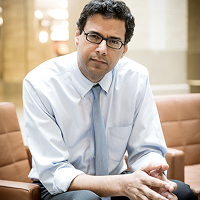- Revenue Cycle Management
- COVID-19
- Reimbursement
- Diabetes Awareness Month
- Risk Management
- Patient Retention
- Staffing
- Medical Economics® 100th Anniversary
- Coding and documentation
- Business of Endocrinology
- Telehealth
- Physicians Financial News
- Cybersecurity
- Cardiovascular Clinical Consult
- Locum Tenens, brought to you by LocumLife®
- Weight Management
- Business of Women's Health
- Practice Efficiency
- Finance and Wealth
- EHRs
- Remote Patient Monitoring
- Sponsored Webinars
- Medical Technology
- Billing and collections
- Acute Pain Management
- Exclusive Content
- Value-based Care
- Business of Pediatrics
- Concierge Medicine 2.0 by Castle Connolly Private Health Partners
- Practice Growth
- Concierge Medicine
- Business of Cardiology
- Implementing the Topcon Ocular Telehealth Platform
- Malpractice
- Influenza
- Sexual Health
- Chronic Conditions
- Technology
- Legal and Policy
- Money
- Opinion
- Vaccines
- Practice Management
- Patient Relations
- Careers
MGMA 2015: Gawande Calls for 'Pit Crew' Approach
The age of the "cowboy" specialist is coming to an end. The future of the medicine is a "pit crew" model. That's the message Atul Gawande, MD, MPH, gave to the Medical Group Management Association Monday.

The age of the “cowboy” specialist is coming to an end. The future of the medicine is a “pit crew” model.
That was the message of Atul Gawande, MD, MPH, in his Monday morning keynote at the Medical Group Management Association’s 2015 Annual Conference in Nashville.
Gawande, a surgeon at Brigham and Women’s Hospital in Boston and a popular author and speaker, argued that shared priorities and teamwork are essential in the transition from fee-for-service medicine to value-based, outcome-focused healthcare.
“We’ve built a system that has been around rewarding and making it easier to deliver stuff — the stuff we discovered in the 20th century, pills and procedures,” he said. “And [the system has] gotten very good. It’s well designed for delivering pills and procedures. But now we’re trying to do this incredibly hard thing. We’re trying to deliver outcomes.”
While the scientific advances have given the healthcare industry tremendous capabilities, Gawande said today the barrier to optimal care isn’t so much a lack of specialized knowledge, but rather a failure to bring that knowledge together to form coherent care.
“The reality is that knowledge has exceeded our capabilities as individuals. It’s gotten much more complicated,” he said. “And most of the failures are happening in between those great clinicians, those drugs, those devices.”
How can healthcare organizations close the gaps? Gawande said the answers can be surprisingly simple. He said medical teams need to ensure they and their patients are clear about their directions and goals when developing and administering care plans.
For example, Gawande’s most recent book, Being Mortal, focuses on palliative care and how physicians communicate with patients who are diagnosed with terminal illnesses. He said doctors often fail to clearly communicate with patients, and physicians aren’t always good at listening. He argues physicians should speak early and deliberately with patients to find out the patient’s priorities, which could range from fighting the disease as long and aggressively as possible to simply wanting to die at home in peace.
He joked that there’s a “highly technical” procedure for determining a patient’s priorities: Ask.
When it comes to surgery, Gawande said many hospitals have made tremendous strides driving down complications simply by developing a checklist of pertinent information and priorities and having all of the operating room team sit down together to discuss the list prior to surgery.
Once the priorities, concerns, and direction are clearly stated, healthcare teams have a better chance of catching problems before they slip through the cracks.
While Gawande said the necessary changes are simple conceptually, he said the shift won’t be comfortable for all involved because it will require probing existing habits and re-orienting practitioners to a more team-based approach.
“We’ve spent a good decade kind of pissed off, like, ‘Who do you think you are, trying to peer into what we’re doing and asking questions?’” he said.
However, he said organizations making the evolution are beginning to realize “that we can’t do it without transparency. We can’t do it without some uncomfortable opening up about how is it you do things… and what can we do to make that link together a bit better and talk about it?”
Photo by Tim-Llewellyn
